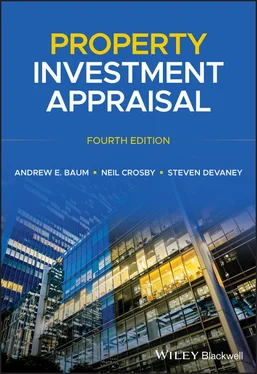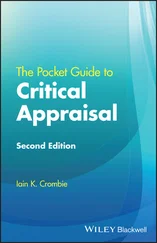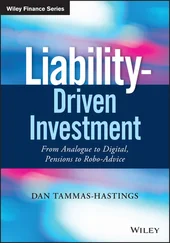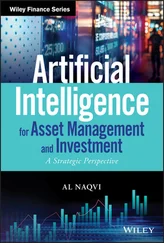September 2020
Neil Crosby, Steven Devaney
Reading, UK
Andrew Baum
Oxford, UK
1 Property Investment Appraisal in its Context
1.1 What is Appraisal?
The subject of this book is the appraisal of property, or real estate, investments. In choosing the term ‘appraisal’, we have two distinct applications in mind.
The first of these is market valuation ; this means to fix a price for an asset, or to predict the most likely selling price of an asset .
The second is investment appraisal . This means to estimate the worth or value of an asset .
The book is concerned with the difference between these two terms. While a market valuation will tell us what a property asset is likely to sell for, an investment appraisal will tell us what the asset is worth to us. In a scenario where we wish to acquire a property, comparison of these appraisals can help us answer the following question: should we pay the market price – or not?
There is now widespread acceptance of the international definition of Market Value set out in the valuation standards of the International Valuation Standards Council (IVSC), which is commonly known as ‘the White Book’. This definition is
the estimated amount for which an asset or liability should exchange on the valuation date between a willing buyer and a willing seller in an arm's length transaction after proper marketing and where the parties had each acted knowledgeably, prudently, and without compulsion.
(IVSC 2019)
Many nations feel the need to have their own valuation standards, not least the UK, whose standards (maintained by the Royal Institution of Chartered Surveyors [RICS]) have been through a number of editions of what is commonly referred to as ‘the Red Book’. The latest edition (RICS 2020a) adopts the aforementioned international definition of Market Value. There are also some regional standards such as the European ‘ Blue Book ’ published by TEGOVA, The European Group of Valuers Associations. This has in the past created some tension and rivalry between international, regional, and national bodies, particularly in Europe. Yet there is now very little disagreement, if any, on the general wording of the Market Value definition, even if there are some differences in interpretation. Hopefully, these differences will continue to diminish as the property investment market becomes more and more international.
Investment appraisal, or the estimation of worth or value, is not necessarily market-based. Between the second and third editions of this book, this concept was both developed and institutionalised, having entered UK valuation standards in the 1990s as the ‘calculation of worth’. It was subsequently defined in International Valuation Standards under the term ‘Investment Value’. Up until 2013, this was defined as:
the value of property to a particular investor or class of investors, for identified investment objectives. This subjective concept relates specific property to a specific investor, group of investors, or entity with identifiable investment objectives and/or criteria.
(IVSC 2007)
This definition blurred a major issue, specifically whether worth or value is to an individual investor or to a group of investors. This question has significant implications about how value might be assessed in practice, as the value to an individual and the value to a group may not be the same. However, in the 2013 edition, the IVSC changed the definition and came down heavily on the side of Investment Value representing worth to the individual investor rather than to a group or the market. The latest definition is:
the value of an asset to a particular owner or prospective owner for individual investment or operational objectives.
(IVSC 2019)
Individual investors are influenced by a set of criteria through which the value of an asset might be assessed. For example, their tax situation, the rate at which they can borrow, how much equity capital they have, what adjoining assets they own, and the strengths and weaknesses of their existing investment portfolio are all factors that may lead them to perceive value in a particular property.
Hence, while all investors may agree upon such important variables as the size of the asset being appraised and the cash flow implications of the lease, individual investors will often be subject to different motivations (see Chapter 2). As will be shown later in this book, the distinction between the estimated price (Market Value) and worth (Investment Value) can be important.
Further, it is possible that a group of investors will share the same characteristics and use similar criteria, the result being that they attach a similar value to a particular property asset. Ascertaining the possible buyer group is very relevant to appraisal and the appraisal process includes identifying objectively measured market variables and the prospective owner's (or group of owners') subjective estimates of other relevant factors. Hence, we believe that there are three basic concepts of value attached to appraisal: first, Market Value or exchange price; second, worth to a group or the market place; and, third, worth to the individual. Investment Value was in previous definitions used to cover both the second and third concepts, but worth to the individual is now the sole basis of Investment Value. We believe that this leaves a definitional hole. Assets can be valued differently to exchange price not just because a specific investor has particular characteristics relating to tax, debt, or other reasons; there are plenty of examples of where the market as a whole did not recognise certain characteristics concerning the asset causing them to under- or over-price properties as a consequence.
The term ‘appraisal’ covers all three processes. We use the term market valuation for the process of estimating Market Value (the prediction of the most likely selling price) and we continue to use Investment Value for both worth to the market and the individual, and will be specific about which is which in the text. We hope this will not cause confusion. It is a shame that the possibility of confusion exists, largely because the development of property terminology has been influenced by the isolation of the property world from other financial markets. There is no doubt regarding the meaning of valuation in the securities markets: it means the estimation of worth. Market valuation (or pricing) is a function that is carried out by buyers, sellers, and market makers. The price of a particular company in the stock market is publicly quoted, and large numbers of identical shares in that company can be bought and sold at that price. There is no need to employ a valuer to estimate the Market Value (or most likely selling) price of a publicly listed share – that price is available on a screen in real time.
In property, however, prices are not available, because each property is unique, the market is private, and there are no market makers. The price at which a transaction will take place will be influenced by an expert opinion – a ‘valuation’ – because there is insufficient market evidence and insufficient homogeneity of product for traders to be able to fix prices. While there may be some consensus regarding the most likely selling price or Market Value, it is to be expected that, at any one time, different views of worth will be held by different individuals and groups. These differences will fuel market turnover: those who believe that the Market Value is higher than the worth of the asset to them will sell; those who believe that the worth to them is higher than Market Value will buy.
Two other concepts of value need to be considered. First, International Financial Reporting Standards (IFRS) contain a definition of value for use in financial reporting that is termed Fair Value. The definition is
Читать дальше












